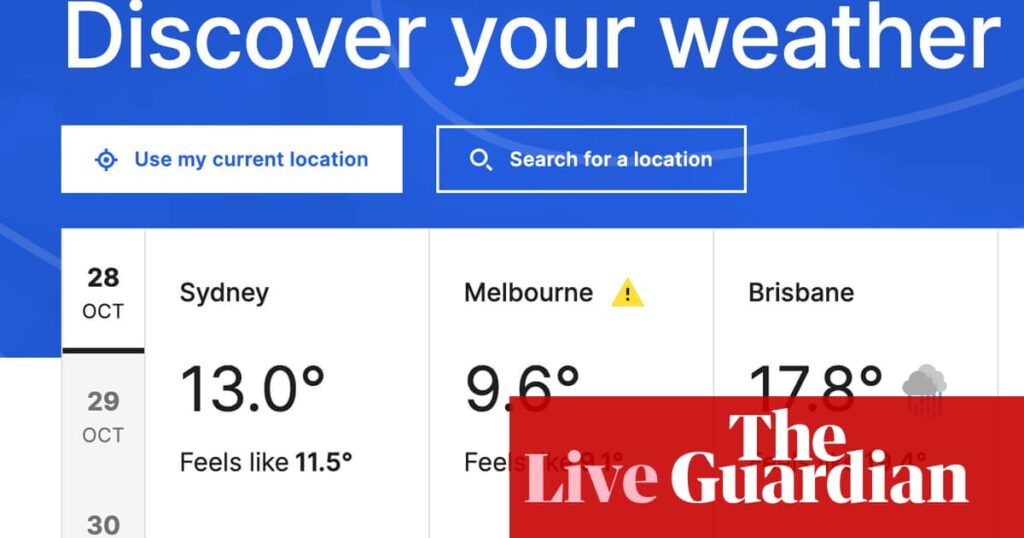
The Australian Bureau of Meteorology (BoM) is facing criticism over its newly revamped website, which has been described as falling short of user expectations. Environment Minister Murray Watt acknowledged the public’s dissatisfaction, revealing that he had summoned BoM’s acting chief executive, Peter Stone, to discuss necessary improvements.
Watt stated, “It’s clear that the new BOM website is not meeting many users’ expectations, with a significant range of feedback provided to the Bureau in recent days.” He emphasized the need for urgent enhancements in the website’s functionality and usability, ensuring it aligns with public needs.
The announcement comes as Australia grapples with broader issues in its energy and climate policies. Energy Minister Chris Bowen addressed ongoing negotiations with Rio Tinto regarding the Tomago aluminium smelter, highlighting the impact of high energy prices and the need for increased renewable energy sources. Bowen remarked, “We fully acknowledge energy prices are a huge issue, 40% of the cost of the operation, they’ve made clear, and to quote them, there’s uncertainty about when renewable projects will be available of the scale we need.”
Political Reactions and Energy Policy Debates
Meanwhile, the political landscape remains charged with debates over energy policy. The Coalition is experiencing internal divisions over the 2050 net zero target, with figures like shadow housing minister Andrew Bragg advocating for its retention. Bragg expressed optimism, stating, “Look, I think we’ll get there on net zero. I know there’s a lot of interest in it.”
These discussions are set against a backdrop of criticism directed at Prime Minister Anthony Albanese for his choice of attire, which some have labeled as inappropriate. However, Housing Minister Clare O’Neil dismissed these criticisms as “ridiculous,” urging focus on more pressing issues like economic challenges and antisemitism.
Healthcare Accessibility Concerns
In another development, a national survey by the Consumers Health Forum of Australia has highlighted significant concerns about healthcare affordability. The survey revealed that only one in three Australians feel confident they could afford necessary medical care if seriously ill, with one in ten unable to afford needed treatment last year.
Dr. Elizabeth Deveny, chief executive of the Consumers Health Forum, stated, “Consumers have told us that Australian health remains deeply unequal, particularly for young adults, people with chronic diseases, and people struggling to make ends meet.”
This data underscores the urgent need for policy interventions to address healthcare access and affordability, a sentiment echoed by experts and advocacy groups.
Legislative Developments and Historical Reflections
On the legislative front, Environment Minister Murray Watt is set to introduce new nature laws aimed at reforming the Environment Protection and Biodiversity Conservation (EPBC) Act. Despite resistance from the Coalition and the Greens, Watt remains hopeful for passage before Christmas, stating, “Every day of delay on these reforms is hurting our environment and costing business time and money.”
In a historical context, Western Australia’s governor, Chris Dawson, recently apologized to the Noongar people for the 1834 Pinjarra massacre, a gesture aimed at reconciliation and acknowledging past injustices. Dawson’s apology marks a significant step in addressing historical wrongs and fostering healing among affected communities.
As these diverse issues unfold, the Australian government faces mounting pressure to address public concerns across technology, energy, healthcare, and historical reconciliation. The coming months will be crucial in determining the success of these initiatives and their impact on Australian society.







